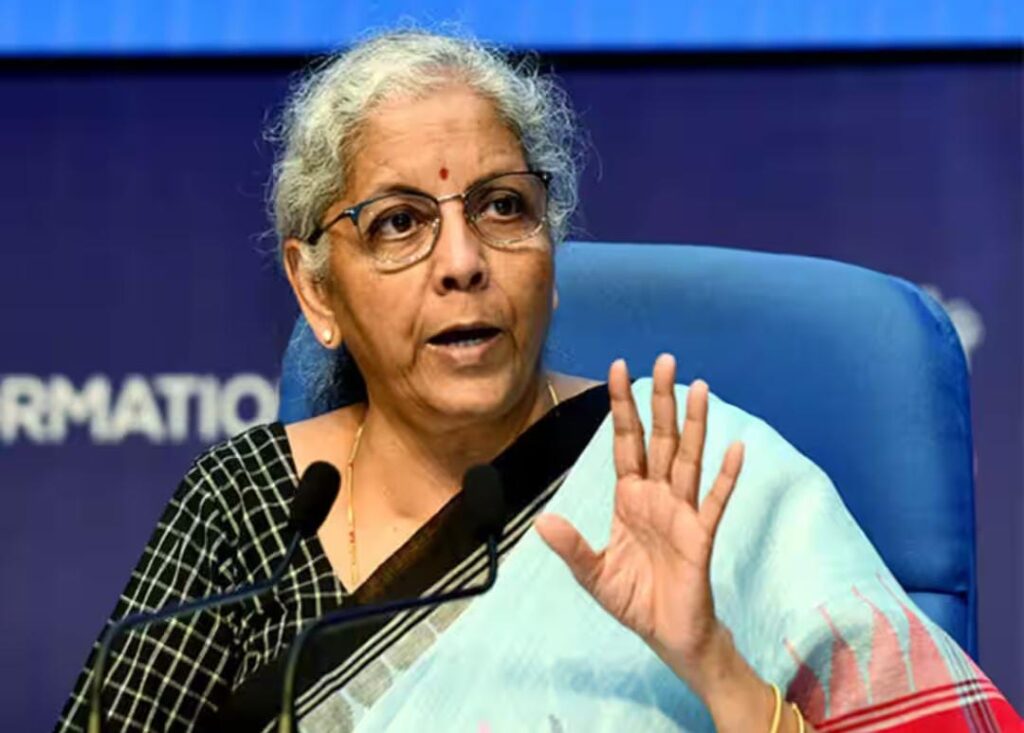
Jobs, growth, Budget, Bills and GST: For FM Nirmala Sitharaman and her officials, it’s busy days ahead
By: Admin
June 12, 2024
Categories: GST Recent News
4 Min Read

Soon after the official announcement on the allocation of portfolios in the new Cabinet of the NDA government, it was business as usual in the ministries.
The Union finance ministry, which will once again be helmed by Nirmala Sitharaman, also allocated Rs 1.37 lakh crore of funds as instalment for tax devolution to states. A late evening release was also issued on June 10.
For the finance ministry, keeping its feet firmly on the pedal, is business as usual, as it often has to react to domestic and international developments in a matter of hours, if not even earlier. Sitharaman, who has held the portfolio since being appointed as the Finance Minister in 2019 under NDA 2.0, is no stranger to the role. Even prior to that, she held charge as the Minister of State for Finance between 2014 and 2017 in the first NDA government under Prime Minister Narendra Modi. Minister of State Pankaj Chaudhry also continues in the same position. Sitharaman is expected to formally take charge of the ministry soon.
Union Budget 2024-25:
The top priority for the finance minister will be to finalise the Union Budget 2024-25, which has to be presented in a matter of weeks – early next month. While it is expected that the policy stance of the interim Budget – with a focus on fiscal consolidation will continue, newer themes – to alleviate rural distress through spending on welfare measures as well as boosting manufacturing investments for job creation, will also be taken up. Micro, small and medium enterprises that continue to face headwinds in terms of funding and expansion are also hoping for some support from the new government.
“With the cabinet formation now out of the way, focus shifts to the Union Budget, expected in July. …we think that following the loss of the majority for the BJP, we may see some changes in spending patterns in the new budget, compared with the Interim Budget,” said An Regional Economist, Barclays in a note on Tuesday.
“While maintaining the infrastructure-led capital expenditure focus, we think revenue expenditure may see an increase. There may be a temptation to increase spending on specific social sector schemes, particularly those which target rural consumption — given that outlays in key schemes has seen little change in the past two years,” she further said.
Given the solid starting position for the government’s books — a large RBI dividend and higher tax collection, we think the fiscal deficit target will remain at 5.1% of GDP, with the borrowing programme likely to be unchanged, she further noted.
The middle class is also hoping for some tax relief with social media flooded with calls for exemption in the capital gains tax regime as well as higher tax exemptions for those choosing to stay in the old income tax regime.
Eye on growth:
But apart, from the immediate policy focus, the finance minister, will also have to navigate the economic challenges and focus on sustaining economic growth and curbing inflationary pressures as far as possible. An uncertain global economic environment that has kept export growth muted has kept policymakers on their toes despite a rapid revival of the domestic economy post the pandemic.
While the economy grew by over 7% in the three years till FY24 and is poised to grow by 7.2% this fiscal, creating adequate jobs for India’s growing workforce needs to be addressed on a mission mode.
A busy legislative agenda:
For the Finance Minister, a number of legislative Bills are also pending that have to be finalised and taken forward depending on the government’s priorities. While big ticket reforms on land and labour may not go through immediately, a number of economic Bills are on the drafting board. These include amendments to the Insolvency and Bankruptcy Code as well as the Companies Laws.
Amendments to the Insurance Act, 1938, and the Insurance Regulatory and Development Authority of India, 1999 for further reforms in the sector have also been pending. The ministry of corporate affairs has been working on a draft Digital Competition Bill which may be taken up for further consultations.
The Central Board of Indirect Taxes and Customs has also recently also invited suggestions on the draft Central Excise Bill, 2024 that would replace the Central Excise Act, 1944.
Goods and services tax:
As chair of the Goods and Services Tax Council, Sitharaman will also have to delve into a number of issues. Revenue from the indirect tax regime has been growing at a steady pace. A meeting of the GST Council is pending and is likely to be announced soon. Online gaming companies are hoping that it will take up the planned six-month review of the 28% tax on the sector and possibly provide some relief. Meanwhile, industry is hoping that the rate rationalisation exercise, under a Group of Ministers of the GST Council, will also be taken forward.
Source from: https://www.businesstoday.in/union-budget/story/jobs-growth-budget-bills-and-gst-for-fm-nirmala-sitharaman-and-her-officials-its-busy-days-ahead-432843-2024-06-11